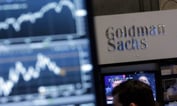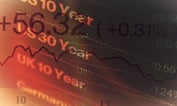Tax efficiency is seen by 85% of financial advisors as a major reason for offering investor clients exchange-traded funds in their portfolios, according to a recent nationwide survey conducted by ThinkAdvisor.com and sponsored by OppenheimerFunds.
Mark Butterworth, president of Butterworth Financial in Tulsa, Oklahoma, explains his thinking behind the use of ETFs: “We’ll have the equivalent of large-cap, mid-sized and small companies in the mixture, and if it’s a taxable account or a non-retirement [account], we use ETFs because of tax efficiencies as well as the transparency of what is owned.”
The advisor says that, depending on market conditions, he has gravitated to value-added and alpha-based ETFs but doesn’t employ leveraged products.
Butterworth also points out that his firm aims to be proactive.
“We don’t set it and forget it. Part of the rationale of using ETFs is from a tax-efficiency standpoint. ETFs can have a capital gain, but most of the time it is handled internally. Mutual funds can have those [kinds of] hiccups at year-end,” the advisor explains.
John Cooper, a private-client advisor with Greenwood Capital in Greenwood, South Carolina, mainly uses international and corporate-bond ETFs.
“The reason is some clients need diversification in small accounts under $500,000. Also, our firm does all in-house research, except for international and emerging markets,” he says, adding that the proliferation of ETFs has helped him customize smaller portfolios.








 August 29, 2017 at 01:36 AM
August 29, 2017 at 01:36 AM










